What happens when people click on a broken link on your website? Here are some of the best examples in the charity sector.
‘Page not found’ – words designed to strike fear into the hearts of digital editors and website managers across the sector.
But it’s much better to embrace the 404 page than to ignore it and hope no-one stumbles across it. After all an amusing, yet helpful, page could be what turns an irritated visitor who’s clicked on a broken link elsewhere into a regular giver after all.
Here’s how some charities are making the most of their 404 pages. Admittedly it appears to help if you're an animal charity.
PDSA
PDSA has nailed the combination of apologising, directing people somewhere helpful, and leaving visitors with a smile.
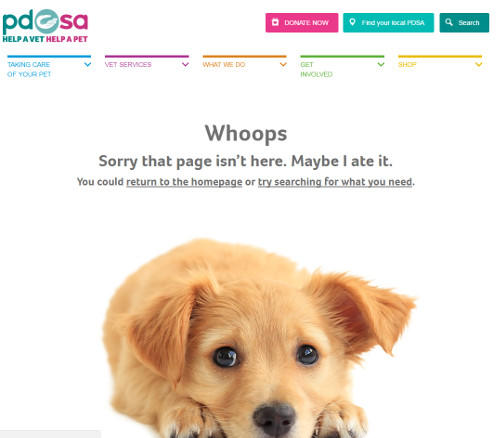
Battersea Dogs and Cats Home
In the same vein as the PDSA, Battersea has made good use of its furry friends. It’s also a nice touch to highlight how many animals it currently has who need a home.
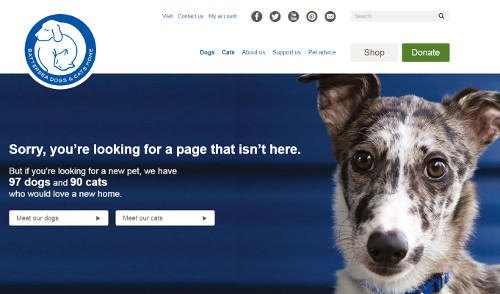
WWF
Hopefully finding stuff on the WWF website isn’t normally as difficult trekking through a blizzard – but it’s a nice touch to acknowledge that there have been some changes to a website recently which could explain broken links.
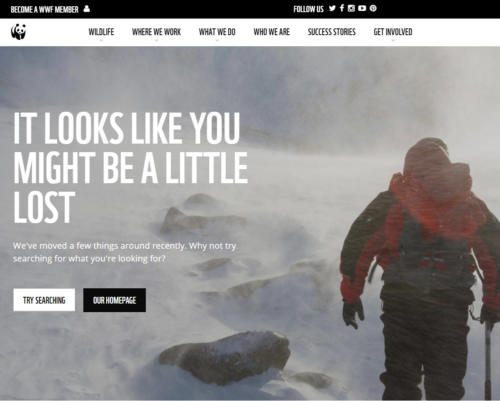
Natural History Museum
If the Natural History Museum couldn’t describe content as ‘extinct’ then who could?
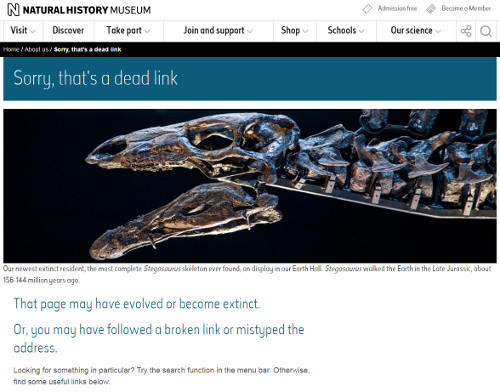
National Trust
The National Trust has combined some excellent pun action with a stunning photo.
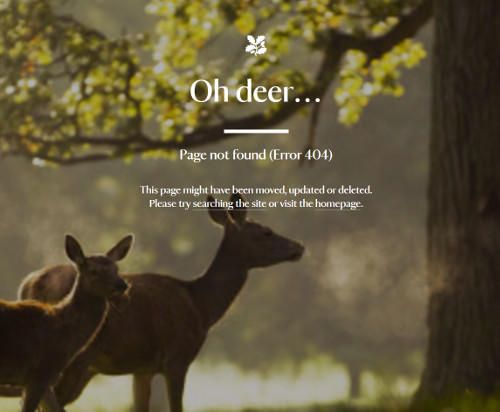
Mencap
Charities often describe their staff as superheroes and at Mencap that extends to the 404 page.
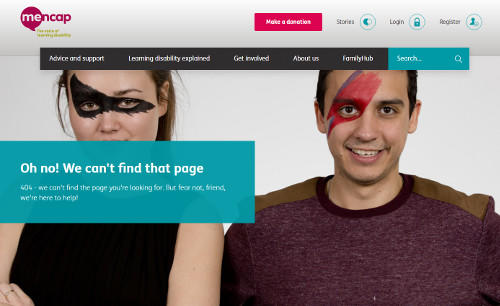
Prince’s Trust
Perhaps referencing the Jay-Z song ‘99 problems’, the Prince’s Trust uses its page to encourage young people to ask for support.

Missing People
Missing People has used its page to highlight a missing person, which seems appropriate. Anyone can add the Missing People application to their website. Find out more here.
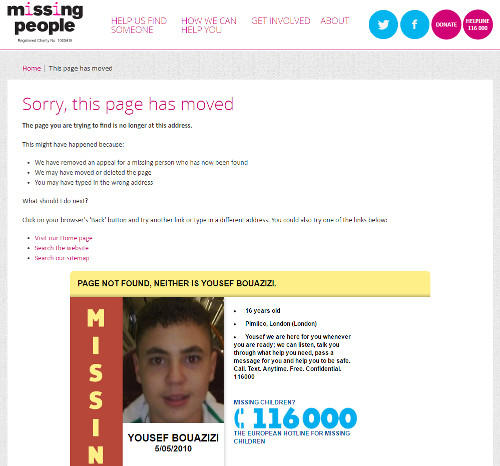
Anthony Nolan
With an amusing cartoon Anthony Nolan reminds visitors that its purpose is to find people bone marrow matches.
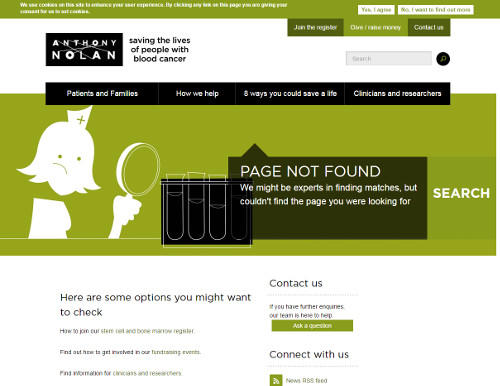
Cats Protection
Maybe Cats Protection could consider replacing all the zeros on its site with this adorable face?
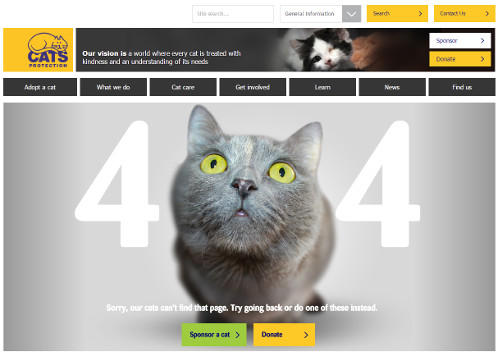
Top tips for a successful 404 page
- Make sure you have one – this seems obvious but I found some relatively high-profile charities without a ‘page not found’ message at all.
- Don’t blame the user for ‘typing the address incorrectly’ – this may be the case, but telling people it’s their fault isn't going to help
- Include links to useful pages – such as the homepage, search or contact us pages
- Don’t try to be too clever - keep it simple and clear.
- Don’t forget to update your 404 page – for example I found one charity that still had its old branding on its 404 page









